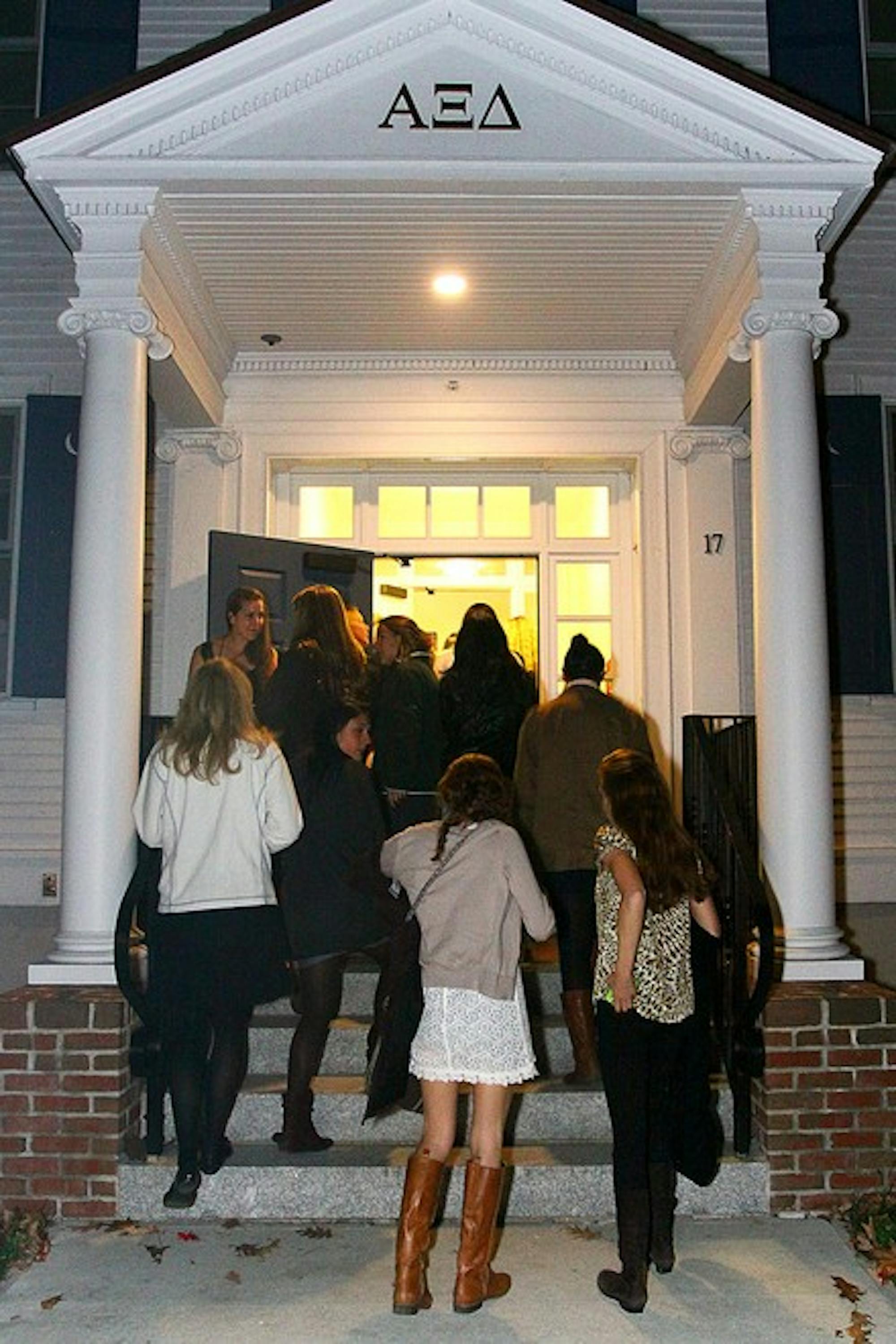The proportion of potential new members receiving bids 78 percent marks an increase from last year's fall rush, in which 68 percent of women received bids, The Dartmouth previously reported.
"Last year, we had a high dropout rate," Sonstegard said.
The number of women registered to rush this year shows that female interest in the Greek system has increased significantly compared to previous years, she said.
Alpha Xi Delta sorority extended bids to 42 women; Kappa Kappa Gamma, 43; Sigma Delta, 42; Kappa Delta Epsilon, 40; Kappa Delta, 25; Alpha Phi, 42; and Delta Delta Delta, 40. Figures for Epsilon Kappa Theta sorority were unavailable as of press time.
"There are a much higher number of girls rushing than ever before," Sonstegard said. "Pledge classes are about 40 girls, while last year it was about 30. It's a very encouraging number."
While there were more dropouts this year as compared to last year, the percentage of dropouts was lower because of the overall increase in women registering to rush.
Bids were offered to 80.5 percent of the girls who attended round one, according to Sonstegard. Of the girls who ranked houses on preference night, 94 percent received a bid from their top ranked house.
"It seemed that the majority of girls ended up happy with their final bid," said Ellen Sandmeyer '12, vice president of recruitment for Panhell. "The vast majority of girls ended up getting their first choice out of their preference houses."
This year's results mark a reversal from the decline in numbers of women entering fall rush that occurred last year. In 2009, 335 women registered, as opposed to 2008's 365 participants. This year, Panhell chose not to release the number of women choosing to "suicide" when women submit only one preference house rather than two to protect those individuals' privacy, according to Sonstegard.
She attributed the newfound interest to changes made to the process this year.
"Typically, we keep the process quiet, but this year, because everything was out in the open, people were more comfortable with the bids they received," Sonstegard said. "They understood the process to a much greater extent."
Both Sonstegard and Sandmeyer said that the recent legal action taken against Sigma Delta sorority for serving alcohol to minors had little effect on the rush process.
"We didn't hear anything about that affecting the process," Sandmeyer said. "Sigma Delta did very well, as did all the houses."
The unity that the Greek system engenders includes higher levels of interaction between class years than provided by other outlets at the College, Sonstegard said.
"Dartmouth doesn't have the social framework to make different classes come together," Sonstegard said.
If interest in female rush continues to rise, the Greek system will have to expand, according to Sandmeyer.
"If we want to decrease pledge class size, we'll have to see more houses built," Sandmeyer said. "We'd love to see more expansion."
Sorority presidents contacted by The Dartmouth did not respond to requests for comment by press time.




